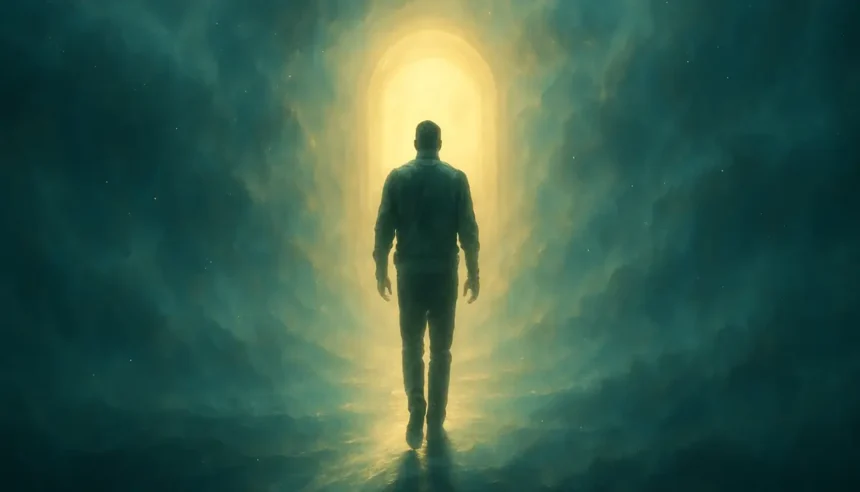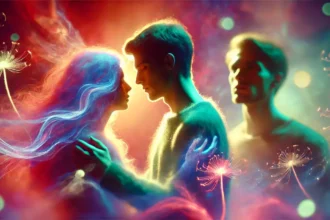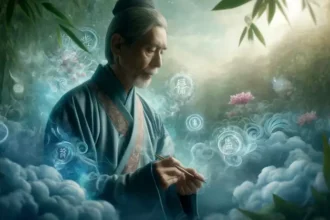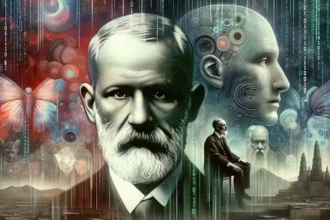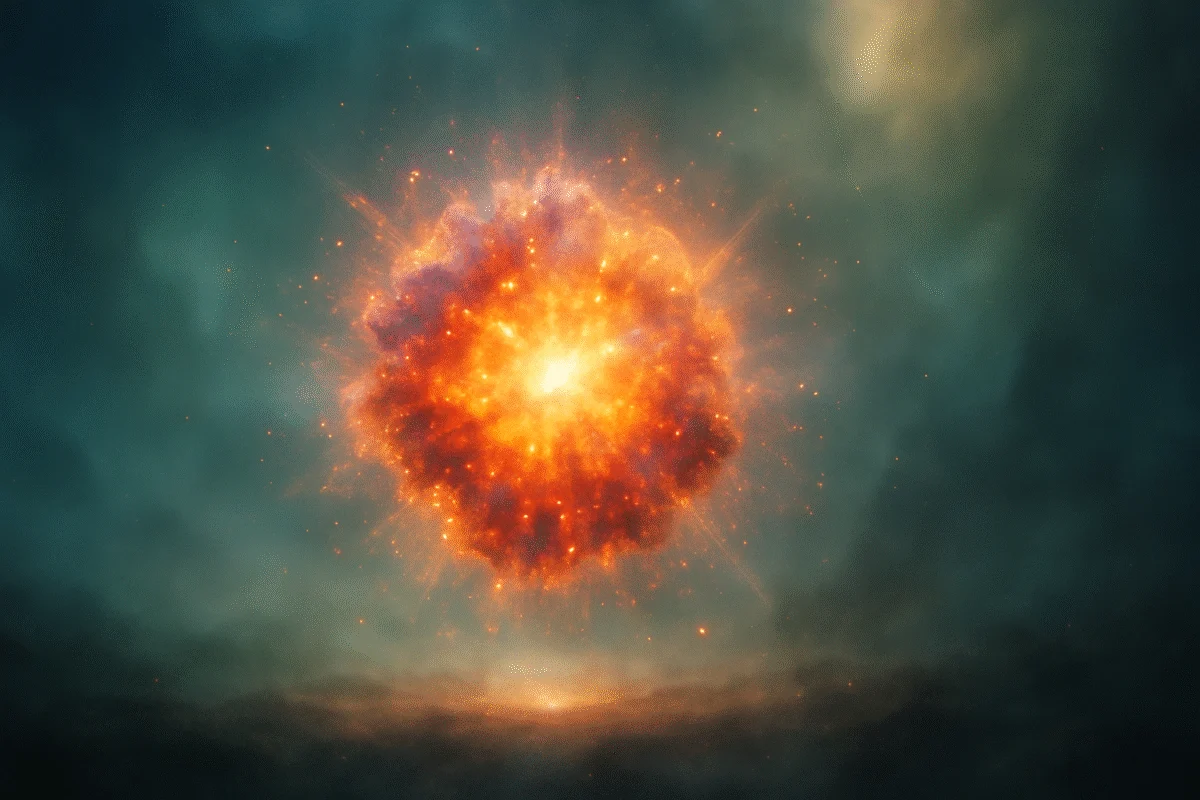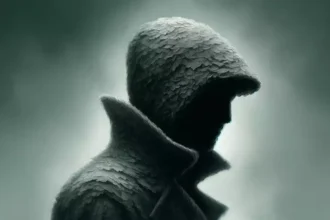Dreaming of the afterlife often signals your thoughts on mortality, legacy, and what lies beyond. Context matters greatly; the details of the dream, like emotions, symbols, and interactions, can shift its meaning. Whether the afterlife feels peaceful or unsettling can reveal your current state of mind.
The state of the afterlife in your dream, along with who or what appears, can change its interpretation. For instance, a serene afterlife might indicate acceptance, while a chaotic one could reflect anxiety about death. The number of figures present, their behavior, and the dream’s overall tone can also provide clues.
Imagery associated with the afterlife, such as light, darkness, or specific figures, adds layers to its meaning. For example, a bright light may symbolize hope, while shadows could suggest fear or uncertainty. Pay attention to these details for a clearer understanding of what your subconscious is processing.
Afterlife Dream Examples
- You find yourself in a bright, serene garden where loved ones who have passed away greet you warmly, filling you with a sense of peace and belonging.
- A dark, foggy landscape surrounds you, and you feel lost, unsure of where to go, reflecting your fears about what happens after death.
- In a dream, you see a loved one who has passed, and you have a heartfelt conversation, providing closure and a feeling of connection.
- You are wandering through a crowded afterlife party, feeling both included and out of place, highlighting your social anxieties.
- Suddenly, you’re pulled into an abyss, feeling panic and dread, which may symbolize your fears about death or the unknown.
- You witness a peaceful transition, like walking through a door into light, suggesting acceptance of life’s changes.
Dream Meaning: Good or Bad?
The meaning of an afterlife dream can shift dramatically based on your emotions and the dream’s context. A comforting afterlife experience often signals acceptance of mortality, while a distressing one might reflect unresolved fears or anxieties about death.
Interactions with figures from the afterlife can also impact interpretation. A positive reunion with a loved one can represent healing, while a negative encounter may suggest lingering grief or guilt.
The setting of the afterlife plays a crucial role. A peaceful environment may indicate readiness for change, while a chaotic or dark space might reveal internal struggles with your own mortality.
Positive Interpretation
In the scene where you find yourself in a bright, serene garden, this symbolizes acceptance and peace with the concept of death. The warm greeting from loved ones signifies support, suggesting you are surrounded by love even in difficult times.
When you witness a heartfelt conversation with a deceased loved one, it often represents closure. This dream can help you process grief and remind you that connections can transcend physical boundaries.
Walking through a door into light is a powerful symbol of transition. It suggests that you are ready to embrace new beginnings and let go of past burdens, indicating personal growth and acceptance.
Dreaming of a peaceful afterlife party where you feel included signifies joy and celebration of life. It reflects a positive outlook on your legacy and the impact you have on others.
Negative Interpretation
If you dream of a dark, foggy landscape and feel lost, it may reflect deep-seated fears about death and the unknown. This dream can indicate that you are grappling with anxiety and uncertainty in your waking life.
Experiencing panic in an abyss can symbolize your struggle with accepting mortality. The chaos in this dream highlights unresolved issues or fears that need addressing.
Feeling out of place at a crowded afterlife party suggests social anxieties and feelings of isolation. This dream may indicate that you are struggling to connect with others or feel misunderstood.
Encounters with negative figures from the afterlife can signify unresolved guilt or regret. This dream may urge you to confront these feelings and seek closure.
Different Cultures, Different Meanings
In ancient Egyptian culture, dreams of the afterlife were significant, as they believed the soul’s journey after death was crucial. Dreaming of the afterlife might indicate a need to reflect on one’s actions and prepare for the next life.
In some Native American traditions, the afterlife is viewed positively, symbolizing the continuation of life. Dreaming of the afterlife may represent a connection to ancestors and the importance of family lineage.
Psychological Perspectives
From a Freudian perspective, dreams about the afterlife might reflect your subconscious desires to confront mortality. In a dream where you see a deceased loved one, this could symbolize unresolved feelings or a longing for connection.
Jungian theory suggests that the afterlife symbolizes the collective unconscious. Dreaming of the afterlife might indicate a journey toward self-discovery and understanding your place in the world.
The continuity hypothesis posits that dreams reflect waking life concerns. If you dream of being pulled into an abyss, it may mirror real-life anxieties about change or loss, showcasing your subconscious processing these fears.
Symbol Variations & Context Cues
- A bright afterlife indicates peace and acceptance, while a dark one suggests fear and anxiety.
- Seeing multiple figures may represent unresolved relationships, whereas a solitary figure could signify personal reflection.
- Interactions with known figures often reflect emotional ties, while unknown figures may symbolize fears or uncertainties.
- The setting—lush vs. barren—can indicate feelings of hope or despair regarding one’s legacy.
- Daytime settings may symbolize clarity and acceptance, while nighttime can evoke confusion and fear.
- Experiencing movement towards a destination suggests readiness for change, whereas feeling stuck may indicate resistance.
What You Should Do If You Dream About an Afterlife
If the afterlife in your dream feels peaceful, consider reflecting on your life and relationships. This may be a good time to express love and gratitude to those around you.
Should the afterlife appear dark or chaotic, explore your feelings about mortality. Engaging in conversations about death or seeking support can help alleviate fears.
When dreaming of multiple figures, think about your relationships. Are there unresolved issues with anyone? Addressing these can lead to healing.
If you experienced a meaningful interaction with a deceased loved one, consider writing a letter to them. This can help you process your feelings and find closure.
Lastly, if the setting felt significant, reflect on how it relates to your waking life. Is it time for change or to confront fears? Understanding this can guide your next steps.


